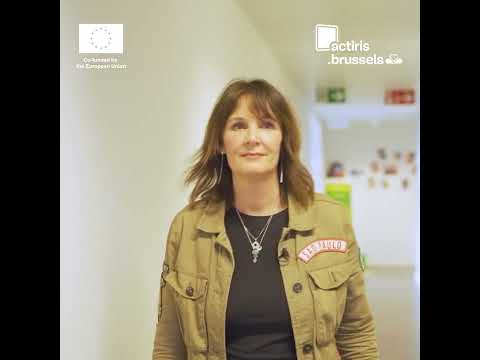
Portugal is making a major push to modernise its vocational education and training (VET) system, with support from European Funds, especially the European Social Fund Plus (ESF+).
The ESF+ is investing over € 1.5 billion in VET in Portugal by 2027, a significant commitment aimed at expanding training opportunities. This aligns with the European Union’s broader goals to boost employment, reduce social exclusion, and increase participation in education.
European Commission visit highlights key messages on VET
The European Commission recently attended Portugal’s largest VET Exhibition – the PESSOAS 2030 Vocational Education and Training Exhibition, held from 13 to 15 November in Santa Maria da Feira – where hundreds of students showcased their practical skills and how they are getting prepared for the future. These students have diverse opportunities ahead – whether continuing to higher education, entering the workforce directly, or starting their own businesses.
At the exhibition, Andriana Sukova, Deputy Director-General for Employment, Social Affairs and Inclusion at the European Commission, underlined the importance of EU and national investments in VET. She highlighted that, with support of the ESF and the Recovery and Resilience Facility (RRF), Portugal has modernised its VET system adopting the ECVET and EQAVET standards and promoting VET as secondary education option. These efforts aim to achieve the ambitious target of 55% of students enrolled in VET by 2030, in line with the Union of Skills objectives.
VET in Portugal is being built on for several years with the support of ESF, helping training and improving the skills of thousands of young people, and every year attracting more young people that see the vocational and educational training as a viable and enriching path to a fulfilled career path.
Over the years, ESF funding has supported the training and upskilling of thousands of young people in Portugal, with an increasing number viewing vocational education and training as a valuable and enriching pathway to fulfilling careers. Witnessing students proudly presenting their work, Andriana Sukova emphasised that ESF+-funded projects are laying essential foundations for Portugal’s workforce and contributing to EU-wide efforts to build a skilled, adaptable labour force.
Building momentum for the future of vocational education
The VET exhibition, held alongside a VET professions competition, showcased the practical achievements of students and educators. It provided a platform to discuss the future of vocational education and the role of investments in meeting national and EU targets for employment, social inclusion, and education.
Expanding training and infrastructure for tomorrow’s workforce
The ESF+ has allocated €1.5 billion to Portugal’s PESSOAS 2030 programme 2021-2027, with a focus on expanding access to training. In addition, €710 million from the RRF will be used to upgrade infrastructure and equipment, helping to prepare more people for the job market and support Portugal’s goal of 55% VET enrollment by 2030.
Aligning with EU goals for employment and social inclusion
The EU aims to raise the employment rate to 78% and reduce the number of people at risk of poverty or social exclusion by 15 million by 2030. Portugal’s investment in VET is a critical step towards achieving these goals.
By prioritising practical skills and targeted training, VET offers a valuable pathway to employment for both young people and adults. It also supports the EU’s goal to have 60% of adults participating in learning annually – essential for adapting to a rapidly changing labour market.
As Portugal continues to invest in VET, these efforts are expected to deliver lasting benefits for employability, economic inclusion, and competitiveness. The results are already visible, with ESF+ having supported over 101 000 VET students since 2021 and targeting at least 366 000 by 2029.



